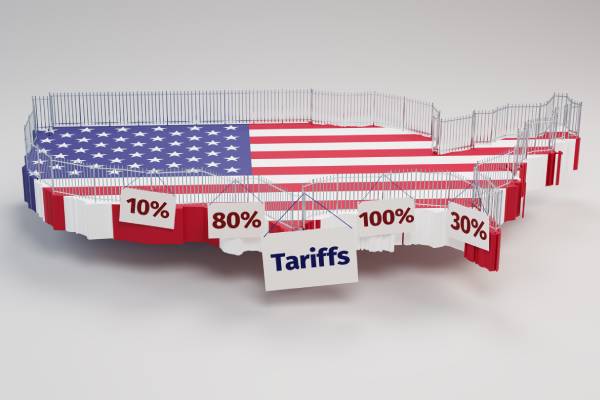
President Donald Trump announced a 90-day pause on tariff hikes for most U.S. trading partners, dialing back his administration’s latest trade measures amid increasing concerns from businesses and global allies. The move keeps a flat 10% tariff in place for most countries, but excludes China, where tariffs have now surged to 125%.
“We are hitting China hard,” Trump said during a press conference. “They don’t respect us on trade, and we’re not going to take it anymore.”
The announcement triggered a major rally on Wall Street. The Dow Jones Industrial Average jumped nearly 3,000 points, or close to 8%, while the S&P 500 and Nasdaq posted their best single-day gains since the early 2020s. Markets responded to the reduced risk of immediate global trade disruption, even as tensions with China escalated.
In response, China imposed steep new tariffs. According to Euronews, Beijing announced an 84% tariff on a wide range of U.S. goods just hours after Trump’s remarks.
Treasury Secretary Scott Bessent said the tariff pause “allows for space to negotiate with our partners,” adding that the administration would reassess after the 90-day window. “China, however, continues to engage in unfair trade practices, and we will not back down,” Bessent said.
National Retail Federation Vice President of Government Affairs David French said that more tariffs equal more anxiety and uncertainty for American businesses and consumers.
“While leaders in Washington may not care about higher prices, hardworking American families do,” said French. “Tariffs are taxes paid by U.S. importers that are passed along to the end consumer. Tariffs will not be paid by foreign countries or suppliers. Even more so, the immediate implementation of these tariffs is a massive undertaking and requires both advance notice and substantial preparation by the millions of U.S. businesses that will be directly impacted. We encourage President Trump to hold trading partners accountable and restore fairness for American businesses without creating economic uncertainty and higher prices for American families.”
National Association of Manufacturers President Jay Timmons described the President’s announcement last week as complicated, adding that manufacturers are scrambling to determine the exact implications for their operations.
“The stakes for manufacturers could not be higher,” said Timmons. “Many manufacturers in the United States already operate with thin margins. The high costs of new tariffs threaten investment, jobs, supply chains, and, in turn, America’s ability to outcompete other nations and lead as the preeminent manufacturing superpower.”
The White House framed the pause as a temporary reset to avoid harming relations with U.S. allies and maintain supply chain stability, while also doubling down on its hardline stance against China.
Economists warn that the elevated tariffs on China could still drive up costs for importers and consumers. “There’s relief in some sectors,” said one logistics analyst, “but uncertainty is far from over.”
With the 90-day window now in effect, businesses are watching closely to see whether the administration will make further adjustments—or ramp tensions back up, especially with China.
For more on the pause, read the latest from Logistics Management